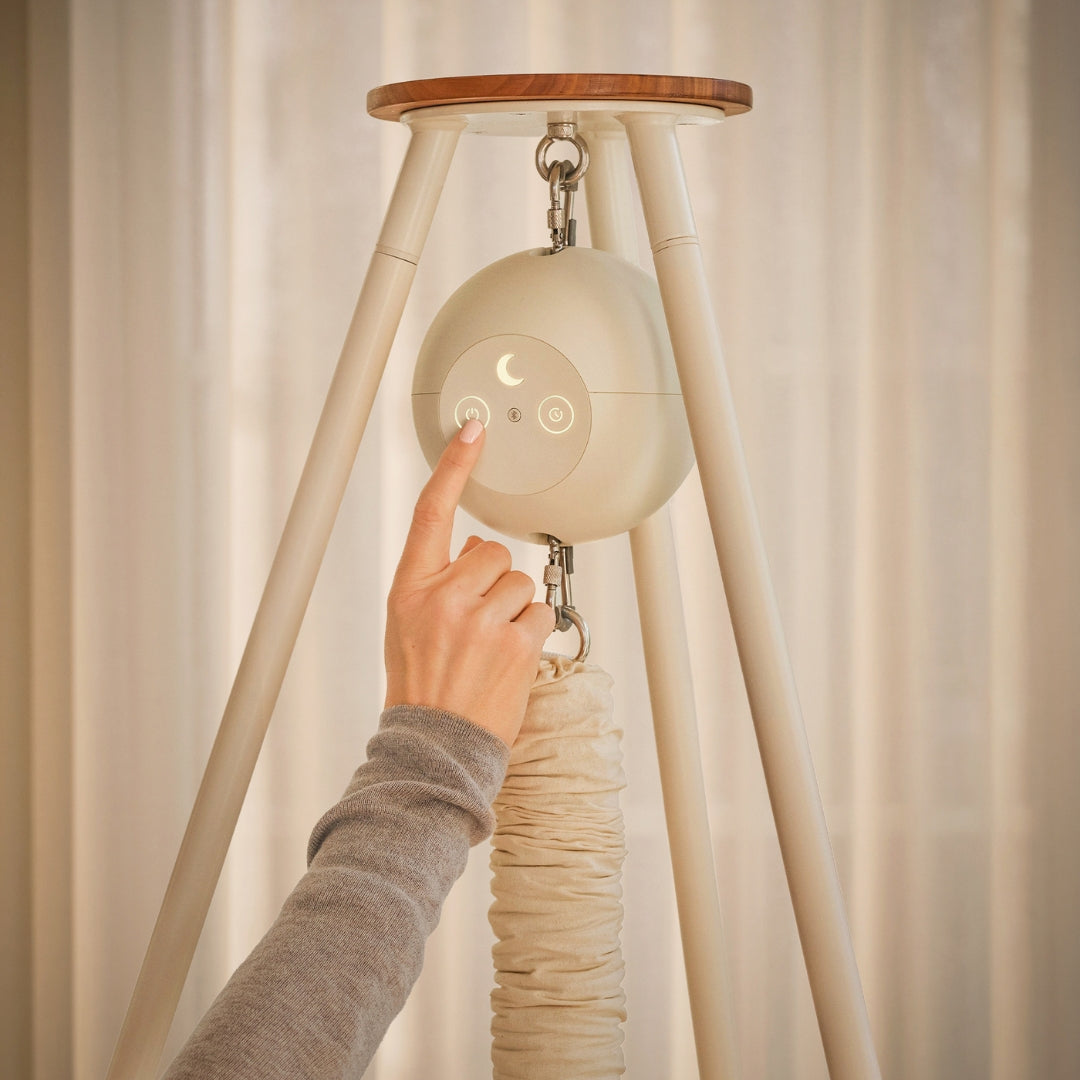


Do you experience that your baby gets fussy and cries in the evening? It’s natural for the little one to whine a bit more at the end of the day.
On this page, you can learn more about why baby cries in the evening and find advice as to how to soothe a crying infant.
Why does baby cry in the evening?
Crying is a natural behavior for baby as it is the only way to communicate with you for now. Have you noticed that your baby cries at certain times of day?
While children differ in terms of their crying, there is nevertheless a certain pattern. Most infants cry a lot more in the evening. This is a time when they are more sensitive, and they need to process the many inputs of the day.
Overstimulation, too, occurs in the evening, generating crying.

This is how much an infant cries
A baby cries the most during the first 3 months of life. As a new parent, you are likely quite concerned when you hear that unhappy sound from the little one.
It may be a challenge to make a baby stop crying, especially at the end of the day and in the evening. This is when the crying is often more intense and longer lasting.
From birth until the age of about 6 weeks, the amount of crying will increase. But parents may rest assured: As baby ages and develops, there will be longer between the bouts of crying. When baby is 12 weeks old, the amount of crying is about half what it was earlier.
My baby cries a lot in the evening – what do I do?
Continued crying can be a huge challenge for parents who will do anything to calm down a wailing baby. Fortunately, there are several tips for how to approach the situation if baby cries a lot in the evening.
Are you finding that your baby is fussy and cries in the evening? If so, it may indicate that the youngest member of the family is overstimulated. You will need to create some peaceful surroundings in which baby can relax.
It helps to eliminate noises. Turn off the radio, TV, washing machine, and dishwasher when it’s time for baby to be put down. Dimming the light will in addition help baby calm down.
Additional tips for fussy babies crying in the evening
As a parent, you are no doubt familiar with the walk back and forth across the living room floor with a crying baby in your arms, and indeed it’s a good idea to rock baby gently. Small swaying movements help baby settle down.
There may be many reasons for the crying. When baby cries in the evening, you might offer some food. A hysterical wail may indicate that baby is hungry or needs a dry diaper.
Should you suspect that your precious one has a tummy ache, you might try a warm bath and a massage of the stomach. You could put the little one on the back and then do the leg “bicycle exercise” to help the digestive process.
Baby colic
Babies may exhibit colicky behavior from the age of 3 weeks to 3 months. Colic is defined as nonstop crying for 3 hours a day, 3 days a week, for a minimum of 3 consecutive weeks.
If baby cries hysterically in the evening, colic may or may not be the reason. The cause of colic is still not known, and therefore there is no adequate treatment of the excessive wailing.

If baby consistently cries hysterically in the evening, see the pediatrician or the district nurse to arrange for an examination.
































